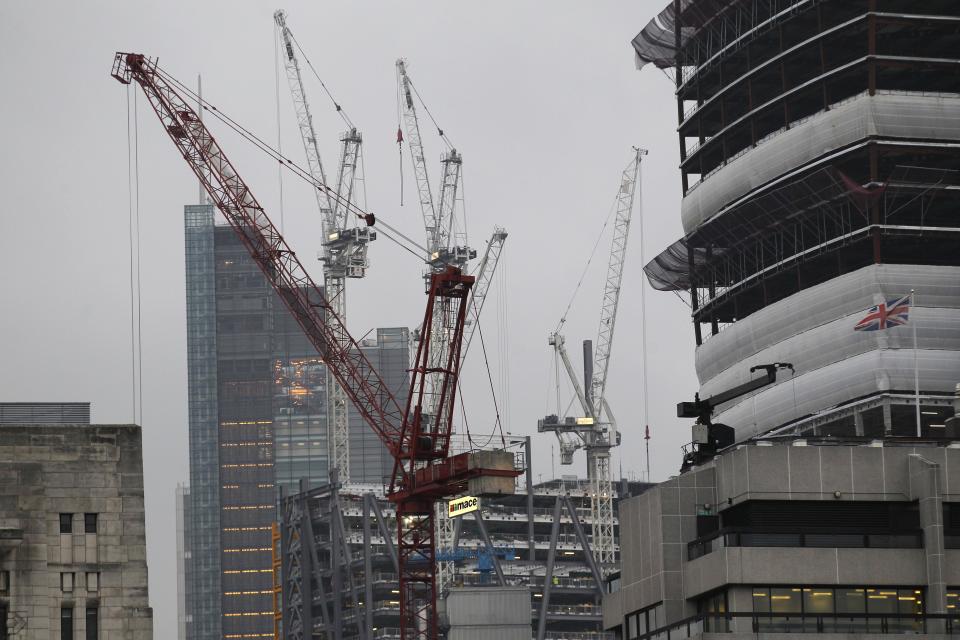UK recession over as economy grows 1 pct in Q3
LONDON (AP) — Britain's economy emerged from its nine-month recession in the July to September quarter, when spending on the Olympics helped it grow by a bigger than expected 1 percent, according to official figures released Thursday.
The number published by the Office for National Statistics beat the market consensus forecast of 0.6 percent growth and will make the Bank of England less likely to approve a further round of economic stimulus in November, analysts say.
The ONS said the result was the strongest quarterly growth in five years, bringing economic output back to the same level of a year ago. It is a first estimate and is subject to revision.
Prime Minister David Cameron, in a message on Twitter, said there was still much to do "but these GDP figures show we are on the right track, and our economy is healing."
Ed Balls, economic spokesman for the opposition Labour Party, said the economy remained "very weak" and there was "no time for complacency."
The Olympic Games and Paralympic Games likely gave the economy a boost, helping employment agencies, the entertainment sector and accommodation, the ONS said, though it gave no estimate of the total impact.
It did say that sales of Olympic tickets that occurred in 2011 and earlier in 2012 — the ones it statistically allocated to third-quarter economic output — accounted for 0.2 points of the rise in GDP.
Most analysts warned that beyond these one-time effects, the economy remains weak.
"As the Olympic effects unwind, it is still possible that the economy contracts again in the fourth quarter," said Vicky Redwood, chief UK economist at Capital Economics.
Others argued that the simple fact the economy grew is good news at a time when many European countries are sliding deeper into recession. About half of the nearby eurozone's 17 economies are in recession and even the largest, like Germany and France, are weakening.
Nida Ali, economic advisor to the Ernst & Young ITEM Club, estimated that when factoring out the one-time boosts, Britain's underlying growth was 0.3 percent, "which is really encouraging, particularly in the difficult external environment."
A breakdown of the ONS figures showed that the dominant services sector, which shrank by 0.1 percent in the second quarter, led the rebound with 1.3 percent growth. Production industries including manufacturing grew by 1 percent but construction activity fell 2.5 percent.




